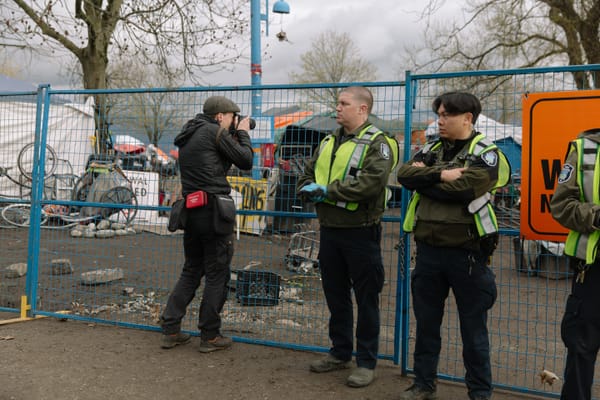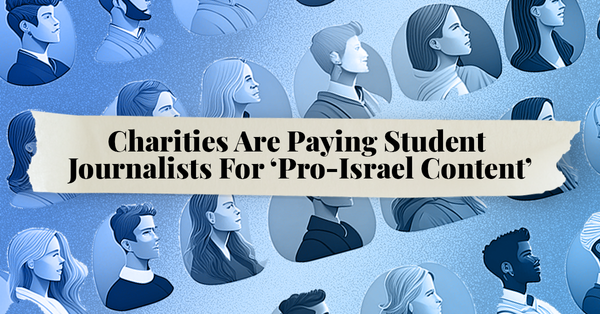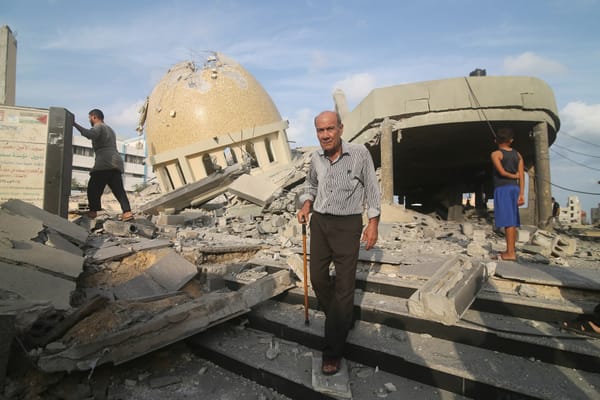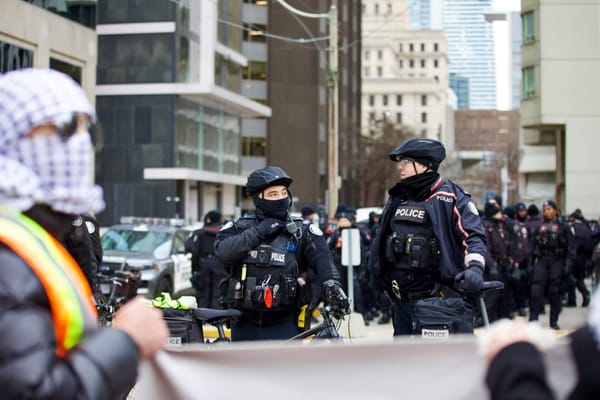Journalists at professional news outlets are forced to abide by a collection of sometimes arbitrary rules dictating how they can write.
In Canada, the majority of newsrooms follow the Canadian Press (CP) style guide. Many of the rules within this guide are ultimately inconsequential (i.e., “per cent” vs “percent”) even if journalists dislike them. Others are more important, such as CP’s decision earlier this year to begin using “Black” instead of “black” to refer to people and culture.
The CP style guide doesn’t contain all the rules, as there are countless other unwritten ones. Unlike many in the guide, however, they can be incredibly consequential by subtly shifting how readers understand stories. And while Canadian style guides may eventually suggest not using them, they now seem encouraged or at least tolerated within newsrooms. I call them bullshit phrases.
Last week, I put out a call on Twitter looking for readers and journalists alike to share their most despised bullshit terms or phrases. I received more than 100 responses. I’m going to go through a few here, show why they’re inaccurate, the function they serve and how they can be avoided.
Most of these phrases end up benefiting those in power. As such, it’s crucial for readers to be able to see through them and understand what’s really going on.
“Canada’s Indigenous People”
Usage example: “The United Nations Special Rapporteur on human rights and hazardous substances says Canada’s Indigenous people are disproportionately affected by toxic waste.”
I searched this phrase on the Canadian Newsstream database — which contains the archives of nearly 600 publications across the country — and found that it has been used on more than 1,180 occasions since 2015. Yet it has long been critiqued by the people it purports to describe.
The Journalists for Human Rights’ Style Guide For Reporting On Indigenous People states, “Do not use ‘Canada’s Indigenous people’ to describe the Indigenous people that are in the country. It is paternalistic and implies Canada owns Indigenous people.”
It also instructs journalists to, “Avoid using ‘Indigenous Canadians,’ ‘Native Canadians’ and the like. Many Indigenous people, specifically First Nations and Métis, identify as being nations within a nation. Many First Nations have signed treaties, which by definition are agreements between sovereign nations.”
Instead, journalists should use the phrase “Indigenous people in Canada” where it’s applicable, and be more specific wherever possible.
(This suggestion was made by Vicky Mochama.)
“Racially Charged,” “Racially Tinged”
Usage example: “Toronto police investigating racially-charged incident on subway.” “SCC sides with Toronto man detained in racially-tinged drug case.”
These confusing phrases have been used on nearly 2,400 occasions since 2015, often by journalists who were describing something blatantly racist but unwilling to label it as such. Journalists shouldn’t use euphemisms in these cases, as they’re inaccurate and offer protection to racists by minimizing the harm of their actions and words.
For example, an August 28 Toronto Star article uses the phrase “racially-charged assault” to describe an incident where a Black couple were “knocked to the ground and kicked in the head by two white people” and “called the n-word and threatened with future gun violence by a third white person.”
In March 2019, the Associated Press (AP) style guide introduced an explicit warning against these phrases, noting, “Do not use racially charged or similar terms as euphemisms for racist or racism when the latter terms are truly applicable.” They also noted that assessing something as racist “need not involve examining the motivation of the person who spoke or acted, which is a separate issue that may not be related to how the statement or action itself can be characterized.”
Journalists should use “racist” or “racism” as descriptors where they apply, and avoid running cover for hate.
“Officer-Involved Shooting”
Usage example: “Man dies after officer-involved shooting in S.W. Calgary.”
This is probably the most nefarious bullshit phrase, as it’s used by journalists who wish to avoid stating that a police officer has shot someone, often fatally. The result is that readers are left with more questions than answers, mainly, “How was the officer involved?”
This phrase isn’t used for legal reasons. Yes, journalists can’t say one person murdered another until they’re found guilty in court, but writing that a police officer shot someone is just a fact. Obscuring this fact, however, is of great benefit to the police.
As media critic Adam Johnson wrote in a 2018 FAIR article, “The purpose of saying ‘officer-involved’ … is to obscure responsibility. A bizarre construction, it does not appear in other contexts. (Can one imagine the headline, ‘Man Dead After Gang Member–Involved Shooting’?) It’s a thought-terminating cliche, a ready-made assemblage of words that does the thinking for the reader in service of a political end—in this case, protecting the police from bad PR.”
This term originated among police forces, and then was picked up by journalists, meaning the media is effectively doing PR for law enforcement. An August 8 Columbia Journalism Review article states that the term’s first appearance in United States media was in 1972, with a journalist quoting a cop. The Los Angeles Police Department institutionalized the phrase in 1974, and media use took off after then.
The first mention in Canadian media I could find was in February 1990, with just 14 more up until the end of 2005. Yet it, or “police-involved shooting,” has been used on more than 1,950 occasions since 2015 alone.
This is a disturbing development, and one that should be reversed. On August 25, the AP Style Book Twitter account tweeted, “Avoid the vague ‘officer-involved’ for shootings and other cases involving police. Be specific about what happened. If police use the term, ask: How was the officer or officers involved? Who did the shooting? If the information is not available or not provided, spell that out.”
Canadian outlets should take their advice, and stop using this piece of cop propaganda entirely.
(This suggestion was made by Desmond Cole, and others.)
“Had Sex With”
Usage example: “Former girls’ soccer coach allegedly had sex with underage player 5 times, sent nudes to students.”
The phrase “had sex with” is fine when referring to consensual sex. Yet journalists often use it when describing sexual assault, which fundamentally misrepresents what occurred and can effectively blame victims.
For example, a 2012 National Post article focuses on a woman in her late-30s who was “sentenced to two years in prison after pleading guilty to three counts of sexual interference.” Her victims included three of her son’s 14-year-old friends, who she provided alcohol with while they were at her house. One of the victims explicitly told the police, “I didn’t want to lose my virginity to her.”
And yet, despite this, the article, titled “Saskatchewan woman jailed for having sex with her son’s three teenaged friends,” includes the following sentences: “a Saskatchewan mother who had sex with three teenage boys, is headed to a federal penitentiary”; “On several occasions, she had sex with three of the 14-year olds after they got drunk on the alcohol she supplied”; “She removed her clothing, started kissing the boy and initiated sex with him.” This sort of phrasing ignores the power imbalance in this situation.
This is just one example of a widespread trend, which includes referring to: teachers sexually abusing their students on a regular basis as a “sexual relationship;” college chants advocating rape as advocating “non-consensual sex;” parents molesting their children as “having sex” with them.
Journalists should only use the phrase “had sex with” to describe consensual encounters.
(This suggestion was made by Kate Austin, and others.)
“International Condemnation,” “International Community”
Usage example: “Though Morales’s government was initially keen to be seen to be cooperating with auditors, and anxious to see the election result recognized by the international community…”
Journalists often use these phrases, which seem to have originated with Western politicians, to refer to how states reacted to another state’s actions, or how states voted at an international body.
Technically, “international condemnation” could just mean countries from different parts of the world condemning something, and therefore be applicable in a wide variety of scenarios. But it’s really used to give the impression that the vast majority of countries in the world agree on something, positioning those who don’t as unhinged outsiders or “rogue states.” This is often not the case.
For example, a July 7 Toronto Star article states that China is “facing international condemnation for a draconian new national security law imposed on Hong Kong.” The article doesn’t mention any support of the law outside China. Yet at the time, far more countries across the world had actually spoken out in defence of the law (53) than condemned it (27) — it just so happens that almost all of China’s supporters were outside of Europe and North America. Going by numbers alone, if countries in the Global South weren’t ignored it would have been more accurate to say the law has “international support.”
The phrase tends to be missing in genuine cases of the “international community” voting together on something, if Canada was left out. For example, in November 2012 Canada was just one of nine states — alongside Czech Republic, Israel, Marshall Islands, Micronesia, Nauru, Panama, Palau and the U.S. — to vote against giving Palestine non-Member Observer State status at the United Nations. Yet Canada wasn’t described as some sort of “rogue state” voting against the “international community.”
Journalists should accurately depict the level of support or condemnation something has worldwide, and where it comes from. This prevents them from appearing to align with Canadian foreign policy.
“Regime”
Usage example: “An outspoken Venezuelan human-rights advocate is urging other countries to follow Canada’s leadership in condemning the role of President Nicolas Maduro’s regime in the deteriorating political and economic crisis in the South American country.”
There’s not really a formal definition of “government” vs. “regime” in the way there is for describing types of governments (i.e., monarchy, liberal democracy, etc.) As such, the phrase “regime” can be applied at will, and yet journalists almost always use it to describe states to which the Canadian government is opposed. Canadian allies tend to avoid getting the label, while enemies are consistently described with it, regardless of their government type.
For example, usage of the phrase “regime” to describe the Bolivian government spiked in the months leading up to the coup that forced out democratically elected leader Evo Morales. The same thing happened with regard to Venezuela in 2019. In the first four months of the year, when Western states were preparing for a coup to attempt to oust Nicolás Maduro, the phrase was used on more than 850 occasions. Consciously or not, journalists served the Canadian government by prepping the public to accept their attempts to force out democratically elected leaders.
Journalists shouldn’t describe a government as a regime just because the Canadian government does so. Instead, journalists should call a government a government, and limit terms describing said government to accurate ones with specific meanings.
“Concerned Citizens”
Usage example: “Concerned citizens meet with Trail RCMP over criminal activity.”
“Concerned citizens” is a phrase journalists use to describe a wide variety of groups, but is demeaning when applied in the context of reporting on drugs, homelessness and overdoses (i.e., ‘concerned citizens are organizing to have a homeless shelter moved out of their city.’)
The word “citizen” portrays those complaining about drug users or the homeless as morally upstanding members of society by virtue of the fact that they’re organizing against another segment of their community. The phrase can also obscure the motivations of those complaining, such as real estate developers with a vested material interest in police clearing the homeless out of certain areas or preventing safe injection sites from being built.
Meanwhile, this phrase also portrays drug users and the homeless as non-citizens, in this context meaning outside of society, not worthy of its protections, etc. This plays a role in the dehumanization of drug users and the homeless, which is especially dangerous in the midst of a record number of overdoses and government inaction.
This phrase should be abandoned, and journalists should be specific about who is complaining and why, without demonizing vulnerable members of society to do so.
(This suggestion was made by John Woodside.)
“Protesters Clashed”
Usage example: “Anti-racism protesters clash with police in Paris.”
This phrase often serves to obscure the role police play in instigating violence, and makes it appear as if “both sides” are equally responsible.
You may have to go several paragraphs into an article to discover that the so-called “clash” was actually police attacking protesters with batons, pushing them with bikes, using tear gas and then arresting them, with the other side being guilty of doing something as insignificant as throwing a snowball.
The phrase is also often used when describing incidents where fascists violently attack those protesting against them. For example, an August 2017 article at CBC is headlined, “Civil rights probe launched after clashes at white nationalist rally in Virginia leave 1 dead.” The story refers to the incident in Charlottesville where a neo-Nazi rammed his car into a group of anti-fascists, killing one and injuring 28 others. This man’s actions, not “clashes,” were what left “1 dead.” (It’s worth noting that on the columnist end, 39 per cent of articles about the incident in the National Post, Globe and Mail and Toronto Star also said that the antifascists were as bad as the fascists, if not worse.)
Journalists should be specific and detailed when discussing these incidents, to make it clear who instigated violence, and the extent to which each side used it, as opposed to just portraying it as an equal battle, especially when involving police.
(This suggestion was made by Aliya Pabani, and many others.)
“Collision Involving Pedestrian”
Usage example: “Eight-year-old girl dies after collision involving pedestrians in London, Ont., police say.”
This phrase is often used when pedestrians are struck and killed or injured by vehicles. It is not technically incorrect, as these pedestrians are in fact involved in a collision, but it’s vague, and fails to note how they are involved. In this sense, it bears some similarities to “officer-involved shooting.”
This practice obscures the danger vehicles present to pedestrians, particularly seniors and those with disabilities, which serves the legal interests of dangerous drivers, as well as the political and financial interests of those who push against public transit, street safety improvements, or any other measures that would help us shift away from car-centric cities.
For example, the headline of the Dec. 1, 2021, Globe and Mail article referenced above does not state how the girl died (or, more accurately, was killed) or even if there were any vehicles ‘involved in the collision.’
Journalists should instead use direct, informative and active language when writing these headlines to make what happened clearer. In this case, the headline could be, “Vehicle strikes group of pedestrians in London, Ont., killing eight-year-old girl, police say.”
These are just a few examples of bullshit phrases journalists use. There are countless others, and the responses to my tweet are a good place to start getting acquainted with them.
These phrases have a wide range of effects, including giving cover to police for violence and fatal shootings, victim-blaming survivors of sexual assault, supporting Canadian foreign policy against Global South states, and minimizing racism. What’s common, however, is that they all benefit the more powerful actors in the situations they describe. Not every journalist uses these terms maliciously or with the intent of serving power, but the phrases do so regardless.
Journalists should be more careful with their wording, and push back against use of these phrases within their newsrooms. As recent updates to international style guides demonstrate, fighting the normalization of these terms may eventually get them pushed out of common use, and lead to more accurate writing that isn’t PR for the powerful.
UPDATE: This article was updated on Dec. 3, 2021, to include “Collision Involving Pedestrian” as an entry.








Member discussion